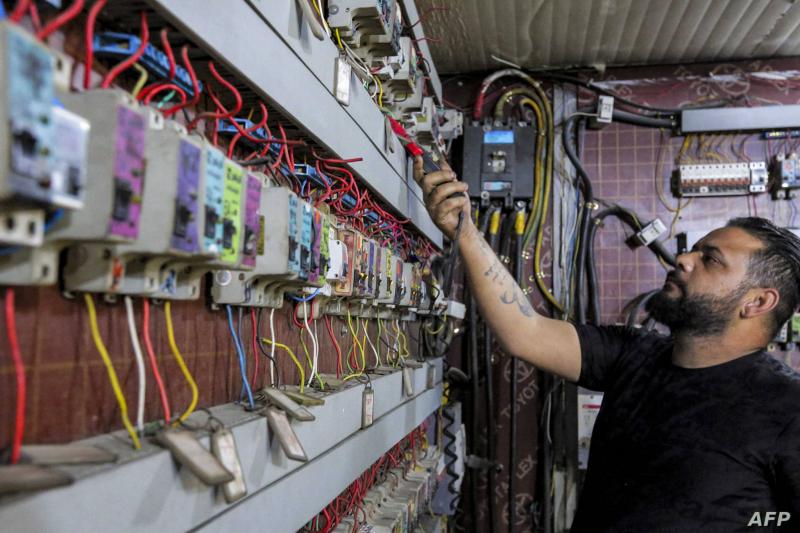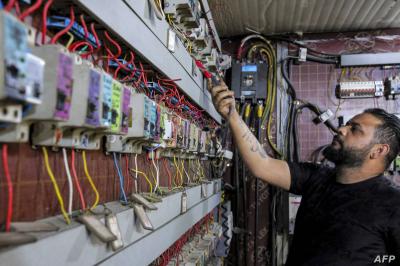Iraqi officials have announced that the country has devised a plan to prevent ISIS elements from repeatedly targeting power transmission towers, which disrupt electricity supply across various provinces of Iraq. Iraqi state television reported on Saturday that four individuals affiliated with ISIS were arrested in the areas of Kirkuk, Nineveh, Salah al-Din, and Anbar province, following recent attacks on the country's electricity network, including a Friday attack that left many neighborhoods in Baghdad without water.
Brigadier General Saad Maan, spokesman for the Interior Ministry, told Iraqi television that security forces have had some success in thwarting recent attacks, indicating that 23 attempts to sabotage electricity towers were prevented in recent days.
Prime Minister Mustafa al-Kadhimi tweeted on Friday that the terrorists responsible for the recent attacks "do not wish well for the country" and are "desperate in the face of Iraq's success in increasing electricity production."
Meanwhile, Iraqi Army Commander Major General Tahseen al-Khafaji told reporters that a plan has been established to stop further attacks on the electricity network. He stated that military leaders would be held responsible for securing the electricity lines and towers, adding that any failures would be investigated and responsible parties would be held accountable.
Al-Khafaji noted that all attackers who have been apprehended "have links to the terrorist ISIS," and that his forces are "trying to determine who is providing them with information about electricity towers and who is funding them."
A spokesman for the Ministry of Electricity, Ahmed Moussa, told reporters that efforts are being expanded to stop the terrorists. He indicated that attempts to damage the electricity network are not a new problem but are currently occurring at substations within cities, targeting drinking water, water purification, and hospital operations. He emphasized that military, intelligence, and security efforts are being made to prevent further attacks.
Conversely, political science professor Khattar Abu Diab from the University of Paris told Voice of America that Iraqi officials wish to blame ISIS for many issues. He pointed out that the electricity crisis is not new, highlighting that various forces want to halt the Egypt-Jordan-Iraq electricity grid connectivity plan.
The attacks exacerbate energy supplies in Iraq, especially during the summer when temperatures exceed 45 degrees Celsius. Despite being an oil-rich country, Iraq lacks the capability to produce enough electricity due to its dilapidated infrastructure, rendering it incapable of achieving self-sufficiency for its population of 40 million. On Saturday, water was completely cut off in the Karakh area, the western part of the Iraqi capital Baghdad, due to the shutdown of water stations following sabotage of the electricity towers supplying them, according to an official statement.




